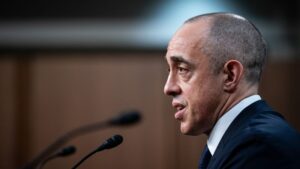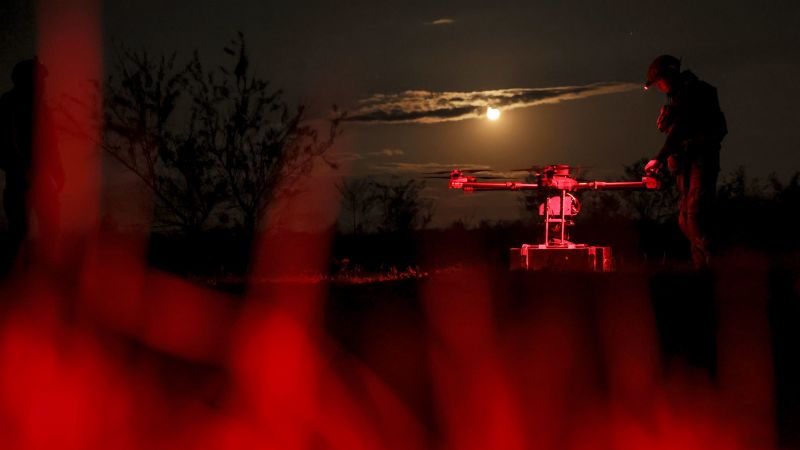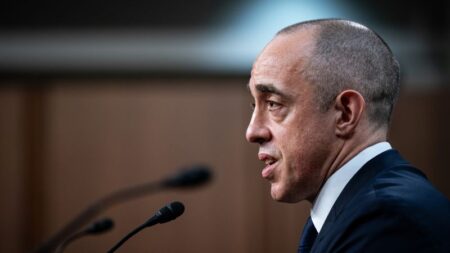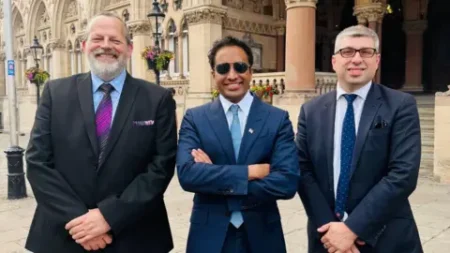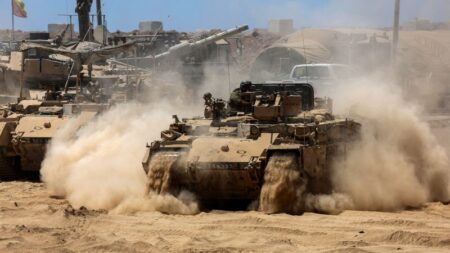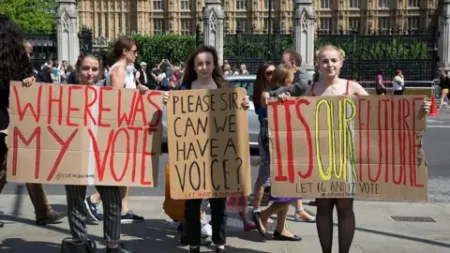In a poignant address during the Association of the US Army’s conference in Wiesbaden, Germany, Major Robert “Magyar” Brovdi, the head of Ukraine’s Unmanned Systems branch, made a compelling appeal to the United States and NATO. He emphasized the grave realities faced by Ukrainian soldiers, urging these allied nations to learn from Kyiv’s innovative use of drone technology in warfare. Brovdi’s emotional message highlighted the dire impact of war on families, remarking that it is essential for future generations to avoid the painful questions from children regarding their parents’ return from battle.
During the panel discussion, Brovdi noted that Ukraine has paid a hefty price, losing lives in their journey toward mastering drone warfare. His intent was clear: to offer allied nations the opportunity to tap into Ukraine’s hard-earned experiences and expertise. “But you can get this expertise out of us,” he assured the audience, indicating a willingness to support nations that have stood by Ukraine throughout its struggles against Russian aggression.
Accompanying Brovdi was Brigadier General Volodymyr Horbatiuk, the deputy chief of the general staff of the Ukrainian Armed Forces. Together, they underscored the critical role of drones in modern warfare. Horbatiuk articulated the near impossibility of carrying out essential military functions without them, highlighting their versatile applications—from logistics management to intercepting potential aerial threats. He provided notable examples, such as Ukraine’s significant drone attacks on Russian airbases, which were witnessed globally and underscored the evolving tactics of warfare.
On the backdrop of Brovdi and Horbatiuk’s appeal, current events in the conflict added urgency to their messages. Just days before the conference, U.S. President Donald Trump announced an increase in military support, specifically air defense systems for Ukraine, signaling a shift in his administration’s approach amid frustrations with Russian President Vladimir Putin. Meanwhile, recent Russian military actions demonstrated the ongoing volatility of the war, with drones targeting various Ukrainian cities, including the hometown of President Volodymyr Zelensky.
In a moment that drew laughter and a sense of camaraderie among military officials and industry leaders present at the conference, Horbatiuk imparted a blunt piece of advice: “Don’t trust Russia.” His remark echoed through the ballroom, signaling a profound distrust of any agreements with Russian leadership, which he claimed are without value even on paper.
Brovdi further elaborated on this mistrust, suggesting that to believe in Putin is a disrespect both to oneself and to the sacrifices made by Ukrainian soldiers. His commitment to the cause was reflected in his personal story of transitioning from a businessman to a military commander. Earlier in 2022, he established a drone reconnaissance team termed “Magyar’s Birds,” which has evolved into a full brigade. His account revealed the strategic necessity of utilizing drones after facing aggressive fire from enemy artillery.
He noted that initial efforts began with simple consumer drones, which allowed him and his troops to identify threats and ultimately adapt these devices for offensive capabilities. Remarkably, Brovdi indicated that their unit has succeeded in neutralizing over 5,000 enemy targets, with their overall combat effectiveness evolving exponentially since their inception.
As the conference wound down, Brovdi humorously noted the risks of his visibility, quipping about being the “most wanted enemy” of Putin, underscoring the precarious nature of his involvement outside Ukraine. His engaging personality shone through as he urged attendance at the AUSA to recognize and learn from Ukraine’s ongoing conflict. General Horbatiuk echoed this sentiment, expressing heartfelt gratitude towards allied nations for their support while advocating for a more resolute stance moving forward.
In his closing comments, Horbatiuk poignantly asked for decisiveness from allies, underscoring the importance of continued and increased support in Ukraine’s challenging fight for sovereignty and stability. This call to action resonated strongly, emphasizing collective responsibility and the urgent need for cohesive strategies amid a complex and dynamic military landscape.

